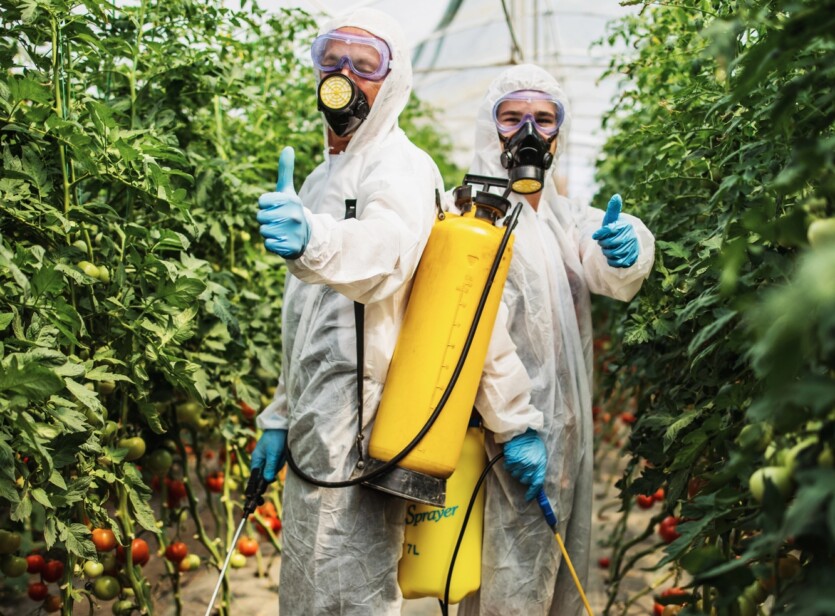
Recent studies show a clear link between the use of farmers around the world pesticides on the fields and serious sleep disorders.
How note Chemistry World journalists, in the Indian state of Maharashtra, farmers spraying pesticides from morning to evening suffer from from insomnia at night. With one of these farmers, Sudhakar Tasgave, the journalists talked to him personally.
According to 55-year-old Tasgawe, he is unable to sleep more than 4 hours a night. He has been using all available chemicals for more than 20 years and has noticed an alarming pattern. After a day of constant spraying, the farmer can’t sleep at night.
After Tasgawe shared his concerns with other farmers, they found similar signs. In Yadrav’s village, insomnia has long been a common occurrence. Research, conducted in 2025 in Thailand, with the participation of 27 thousand farmers, demonstrated that lasting impact pesticides is clearly linked to sleep disorders.
«Many groups of pesticides, such as organophosphates, carbamates, and pyrethroids, can affect neurotransmitters», — explains toxicologist at Naresuan University and lead author of the study Chudchawal Juntarawijit.
These chemicals upset the delicate balance acetylcholine and GABA, which help slow down brain activity and signal the need for rest. The sleep-wake cycle is partly regulated by melatonin. Some pesticides mimic its structure. Others — can disrupt melatonin production.
As noted by epidemiologist at Stanford University Astrid Zamora, whose research in 2021 found a link between pesticide residues in the body and sleep disorders in American adults, certain classes of chemicals can disrupt melatonin production pathways.
The scientist notes that although human research data is still limited, animal studies show more convincing signs. In particular, one of the studies dedicated carbaryl — a widely used insecticide, has shown that it suppresses the production of melatonin in the pineal gland, thereby shifting the body’s natural biological clock. As a result, there are problems with falling asleep, staying asleep for a long time, and waking up and feeling full of energy.
Since 1990, global pesticide production has almost doubled, reaching 3.7 million tons in 2022. In the same year. The International Labor Organization estimates that 873 million agricultural workers are potentially exposed to these chemicals.
In Uganda, the research 253 smallholder farmers participated. Those who used pesticides more frequently reported signs of severe insomnia and problems falling asleep.
In Spain, scientists from the region Almeria discoveredthat sleep disorders in farmers are caused by hyperactivity of nerve impulses under the influence of pesticides. These chemicals disrupt the work of enzymes such as acetylcholinesterase, which helps to restore the nervous system. Without it, the brain will remain in a state of increased activity.
In addition to this Chudchaval Juntaravijit emphasizes that prolonged exposure to pesticides provokes inflammation of the brain and respiratory tract, which also contributes to poor sleep. At the same time, many farmers during spraying with pesticides do not use gloves, goggles, and masks.
«Sometimes pesticides get into my eyes and nose, causing a lot of problems, but I’m used to it Some leave an unpleasant odor that lingers on the body for several days No matter how much you wash, the smell remains», — says Sudhakar Tasgave, a farmer who earns just under $9.5 a week.
Tasgave sprays pesticides about 25 days a month for 7 hours a day. According to him, pesticide resistance is considered an honor in local farming circles.
Nevertheless, because of the pesticides, Tasgave hardly sleeps and his health is deteriorating. And he sees no way out of the situation.
«If I don’t spray pesticides, I won’t be able to make a living. If I do, I will die from their harmful effects», — the farmer explains.
According to another farmer from a neighboring village Jambali Dilip Shinde, his friend died due to acute pesticide poisoning, and another — lost the ability to walk. Shinde emphasizes that he tries to be careful, wears a mask, washes frequently, and sprays less. However, even this method does not relieve him of sleep problems.
Spanish researchers have found that simply wearing gloves while spraying reduces the risk of insomnia by more than half. In addition, masks can provide considerable protection. But for this to make a difference, farmers need to be aware of it and have the necessary tools.
Many farmers also do not read labels on pesticide containers The instructions are printed in English or a regional language they have never learned Narayan Gaikwad, one of the region’s oldest farmers, stopped using pesticides after a doctor diagnosed him with nail dystrophy and linked it to chemical exposure. His nails became brittle and dented. He could not sleep. Since then, he has switched to organic farming and now teaches others about it.
Source: Chemistry World; ZMEScience

Spelling error report
The following text will be sent to our editors: